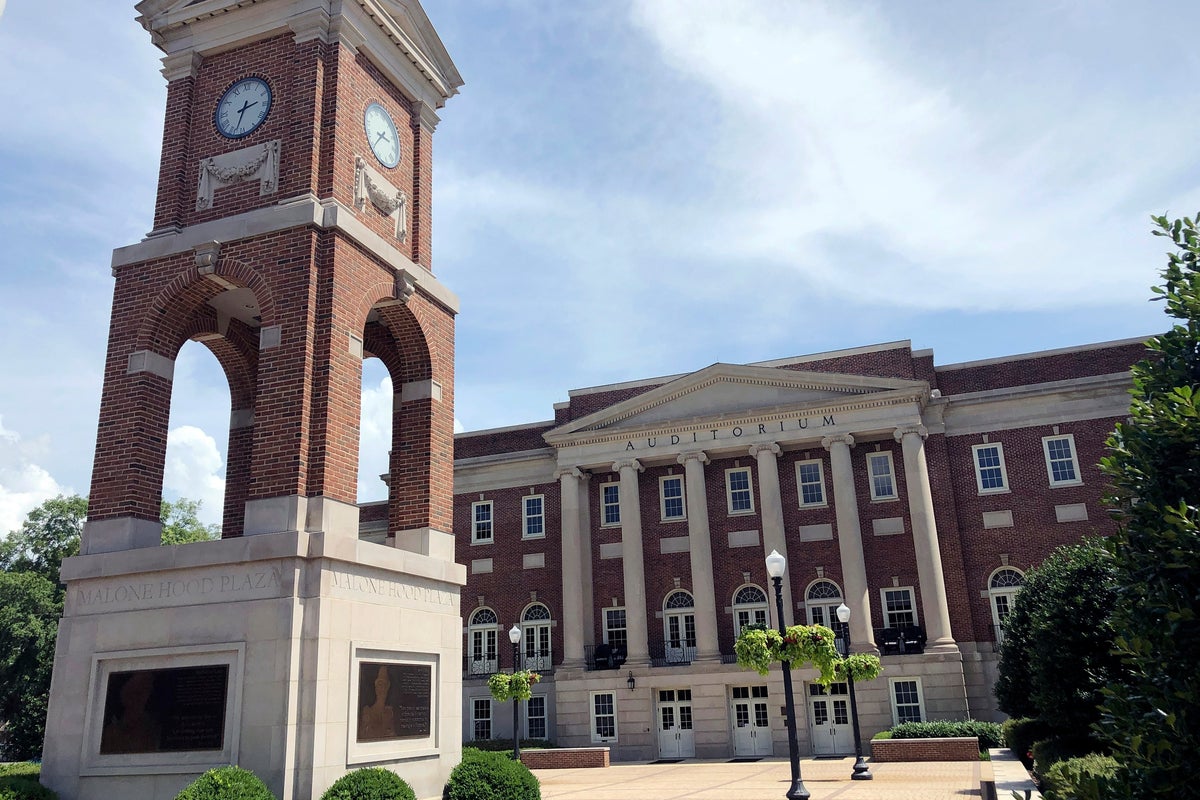
Professors and students at the University of Alabama testified on Thursday that a new an anti-diversity, equity and inclusion law has jeopardized funding and changed curriculum, as a federal judge weighs whether the legislation is constitutional before the new school year begins.
The new state law, SB129, followed a slew of proposals from Republican lawmakers across the country taking aim at DEI programs on college campuses. Universities across the country have shuttered or rebranded student affinity groups and DEI offices.
The law prohibits public schools and universities from using state funds for any curriculum that endorses or compels assent to viewpoints about eight “divisive concepts” related to race, religion, gender identity and religion. Instructors are also prohibited from encouraging a person feel guilt because of those identities. Schools are still allowed to facilitate “objective” discussions on those topics, according to the law.
Dana Patton, a political science professor at the University of Alabama, was one of six professors and students who sued the school and Republican Gov. Kay Ivey in January, arguing that the law violates the First Amendment by placing viewpoint-based restrictions on educators’ speech. The lawsuit also argued that the law unconstitutionally targets Black students because it emphasizes concepts related to race and limits programs that benefit Black students.
Shortly after the law took effect in October, Patton said that school officials told her that five students had made complaints suggesting that the interdisciplinary honors program she administered had potential conflicts with the new legislation. The program focuses on social justice and community service.
University officials said a “powerful person” in the state Capitol was behind the five student complaints, Patton testified.
The complaints alleged the program “promoted socialism” and focused on “systematic racism" and “producing engaged global citizens as opposed to patriotic Americans,” according to evidence presented at the hearing. The complaints also said students “feel unsafe” because “the leadership of the program has a clear view of the world from a divisive perspective."
“I was completely shocked, stunned," Patton said.
After weeks of meetings where Patton exhaustively laid out the content of her courses to administrators, she said she was introduced to Alabama Republican Rep. Danny Garrett at a school football game.
Garret told her that “we need compromise here” because the legislators involved in the complaints are “tenacious” and “not going to let this go.” He then sent her links to work he had done with Black Democratic state legislators after the death of George Floyd to address racial tension.
Patton said the conversation “very much felt like a threat” because Garrett is the chair of the Alabama House Ways and Means Education Committee, which is one of two legislative committees that oversees the university's funding.
The tenured professor said she has since removed some course material from her syllabus and is no longer posting slides of her lectures online, out of fear that her lessons might be misinterpreted.
Garrett declined to comment on the pending litigation.
University lawyer says law hasn't caused harm
Jay Ezelle, the defense attorney for the University of Alabama Board of Trustees, said the school had an obligation to investigate if students complain about being tested on an opinion, not on a performance.
“If that’s violated, the university has to investigate, correct?” Ezelle asked during cross-examination.
He added that the law had not created any measurable harm against the plaintiffs, because no faculty had been terminated or formally disciplined, and school administrators had sourced private funding for some affinity groups, who still have access to campus facilities.
Professors said they had to remove class assignments
Other professors testified that they felt compelled to pull class assignments or stop offering classes altogether based on Patton’s experience, as well as formal instruction from the university about the “risks” of testing students on divisive concepts.
Rising senior Sydney Testman said she lost her scholarship because it was tied to her job at the Social Justice Advocacy Council, which was terminated after the anti-DEI legislation went into effect.
“No one wants to say it's disproportionately affecting Black people,” she said. “The vibes are kind of 'everyone fend for yourselves.'”
Federal U.S. Chief Judge R. David Proctor said the case will largely hinge on whether classroom speech is protected under the First Amendment and whether the state has a right to influence curriculum. Proctor will also consider if the six students and professors who brought the lawsuit against the University of Alabama have been harmed by the new law.
He said he will make a decision in time for Alabama schools to have “clarity by the start of school.”
___
Riddle is a corps member for The Associated Press/Report for America Statehouse News Initiative. Report for America is a nonprofit national service program that places journalists in local newsrooms to report on undercovered issues.







